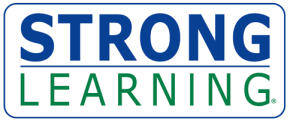Dysgraphia
Dear Dr. Linda,
Let me begin by saying that I value what teachers do. I wouldn’t want to spend all day teaching kids. But sometimes they act as if they have all the answers and they don’t. My daughter is in third grade and I know she has dyslexia, but her teachers tell me she doesn’t. I have dyslexia so I know she does. Here are her symptoms: she still writes her b and d the wrong way. She doesn’t capitalize anything. She doesn’t use any punctuation marks, and I can’t read a word she writes. It simply is not legible. Doesn’t this sound like dyslexia to you? Thanks, Barbie
Dear Barbie,
You are describing a learning disability but not dyslexia.
What you’re talking about is dysgraphia, a writing disorder. Many children and adults suffer from poor penmanship. These children complain that their hand hurts after writing even a few sentences. They also forget to capitalize words, even the first word in a sentence. Many times they’ll write a complete paragraph without any punctuation. Their spelling is poor and their writing is illegible.
The only symptom your daughter has that’s also symptomatic of dyslexia is poor spelling. And, as far as the b and d being reversed, that’s simply memory. Tell your daughter to draw a vertical bat and then draw one ball on top of the other touching the bat. Then draw an arrow showing the top ball falling off. Now she’s left with the lowercase “b.” That’s all she has to remember. Just one rule and she’ll know that the “d” just goes the other way.
Unfortunately, many children aren’t diagnosed with dysgraphia and go through school being told that they’re lazy and sloppy. They’re made to recopy their work over and over again. These children also struggle in math because they can’t keep their numbers in columns. Because they don’t write their numbers correctly, the teacher may think they have the wrong answer and can’t do the math. It’s not a math challenge but a writing challenge.
It’s interesting to note, that many children who suffer from dyslexia also have dysgraphia. Make sure your daughter is diagnosed correctly since her struggle with schoolwork is caused by a physical difference that is beyond her control.
This definition of dyslexia will help you understand the difference between dysgraphia and dyslexia. Many children have both.
“Dyslexia is a learning disorder characterized by difficulty reading due to problems identifying speech sounds and learning how they relate to letters and words. Also called specific reading disability, dyslexia is a common learning disability in children. Dyslexia occurs in children with normal vision and intelligence. Sometimes dyslexia goes undiagnosed for years and isn’t recognized until adulthood. There’s no cure for dyslexia. It’s a lifelong condition caused by inherited traits that affect how your brain works. However, most children with dyslexia can succeed in school with tutoring or a specialized education program. Emotional support also plays an important role.”
October has been chosen as Dyslexia Awareness Month. If you’re concerned that your daughter may have dyslexia or dysgraphia, or even dyscalculia, a math disorder, be sure to learn more about these disorders. Share your concerns with your daughter’s teachers and have her tested.
Once you have the information about these learning disabilities and whether your daughter has one or more, you’ll be able to find strategies and the correct remediation to help her succeed in school and ultimately in her life. Many children who go through school thinking they’re stupid never reach their potential because their disability was never dealt with correctly.
Dr. Linda
Co-author of Why Bad Grades Happen to Good Kids and director of Strong Learning Tutoring and Test Prep, Inc. If you have any questions you’d like to share with Dr. Linda, email her at Linda@stronglearning.com.
